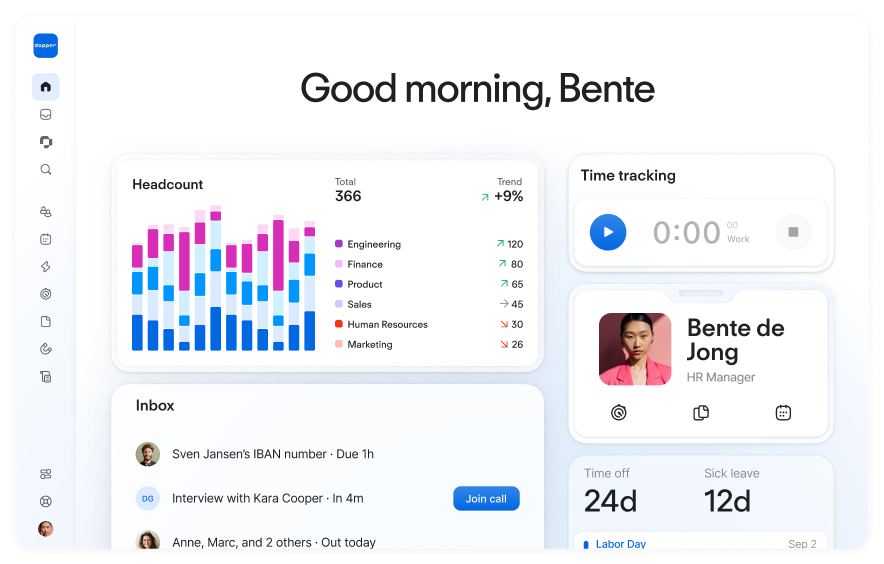9. June 2025
Break guilt is the new burnout: Time for a cultural reset in the workplace

In a time when workplace wellbeing is high on the agenda, one issue continues to fly under the radar. One that is quietly eroding employee health, productivity, and retention.
Break guilt.
Despite a growing awareness of burnout, many employees still feel unable to take one of the most basic steps toward preventing it: simply stepping away from their desks. Worryingly, the consequences of this invisible pressure are mounting, especially for women and young professionals.
It’s time for a cultural reset.
Britain has a break problem
Across the UK, workers routinely skip breaks, not because they want to, but because they feel they can’t. Our recent survey of 2,000 Brits found that over half (56%) stay at their desks or work through lunchtime, with 30% conceding to feeling a sense of guilt when taking breaks. Astonishingly, more than half of the respondents said they have worked through illness, while 65% have gone full days (7-8 hours) without a single break. An eye-opening 60% even admitted to answering calls and emails while on the toilet or during lunch breaks.
Who’s feeling it the most?
Break guilt doesn’t affect everyone equally. 18-24-year-olds and women are carrying the heaviest burden. Our research shows that 62% of women are likely to skip breaks compared to 58% of men. Over half of women (56%) are also more likely to stay at their desks and work through illness, suggesting an ingrained pressure to prove their dedication.
The generational divide is also stark. 18–24-year-olds are significantly more likely than workers between 55 and 64 to feel guilty for taking a full lunch break (39% vs. 17%), with almost three-quarters (73%) remaining at their desks throughout the entire working day. Alarmingly, 44% of these young professionals under 25 say their employer actively pressures them to avoid taking breaks, which is nearly three times higher than 55 to 64-year-olds (17%). This paints a worrying picture for the future of work, where guilt and presenteeism threaten to replace wellbeing and balance.
Breaks aren’t a luxury, they’re a performance tool
We know that regular, meaningful breaks help to improve focus, energy and emotional resilience. They can support creativity, reduce mistakes, and contribute to better decision-making. Yet in many organisations, stepping away is still seen as a sign of slacking off, rather than an essential tool for high performance.
The business case is clear: burnt-out employees are more likely to take sick days, switch jobs, or disengage from their work entirely. In cultures where rest is stigmatised, staff turnover risk increases, collaboration drops, and psychological safety, which is a key driver of innovation, takes a hit.
Put simply: you can’t do great work on an empty tank.
From break-shaming to break-empowering: What can HR do next?
Lead by example
Managers should model the behaviour they want to see, visibly taking breaks and talking openly about why they matter. Avoid working through lunch or pushing through every deadline, as people will mirror what they see, not what the policies say.
Educate your workforce
Only 32% of employees know their legal break entitlements. In the UK, this is a 20-minute uninterrupted break for anyone working six hours or more. This should be clearly communicated during onboarding, reinforced in employee handbooks, and regularly discussed in manager check-ins.
Design for micro-breaks
Encourage employees to take short breaks between meetings and introduce “no meeting” blocks to create regular opportunities for rest, movement, and reflection throughout the day.
Normalise taking time out
HR should build a culture where taking breaks is seen as essential to wellbeing, not a sign of weakness. Use regular, open conversations during one-to-ones, check-ins and surveys to better understand how employees really feel about their workloads and energy levels.
Be consistent
Make sure your company aligns its policies with practice. If your culture celebrates business over balance, employees will ignore what’s written and follow what’s modelled.
HR teams don’t need to tackle this shift alone. Our HR platform can help encourage healthier work habits by introducing transparent time tracking, custom-break policies, and better visibility, making it easier to turn good intentions into consistent practice.
Breaks are a signal of workplace culture. What is yours saying?
When employees feel guilty for taking a break, it’s not a reflection of their work ethic; it’s a reflection of the culture they’re working in – one that could be quietly eroding performance, loyalty, and wellbeing.
To change that, breaks and planned absences need to be treated with the same care and structure as onboarding or performance reviews. When people feel supported to rest, they’re more energised, engaged, and able to grow and do their best work.
Breaks aren’t a distraction from work – they make great work possible.

